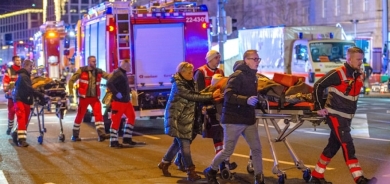SDF Declares General Amnesty in Newly Captured Deir ez-Zor Areas Amid Ongoing Syrian Conflict

The Syrian Democratic Forces (SDF) have declared a general amnesty in newly captured areas of Deir ez-Zor province, as the Kurdish-led force moves to stabilize the region following significant territorial advances.
SDF General Commander Mazloum Abdi announced the amnesty via X (formerly Twitter), stating, “As our forces advance into Deir Ezzor to secure the region in light of the evolving situation, we are declaring a general amnesty without exception in these areas.” He urged local residents and tribal leaders to cooperate with SDF forces to prevent disorder and maintain security.
The SDF’s announcement follows their deployment to areas previously held by the Syrian army. The army was forced to withdraw as it confronts a major rebel offensive in northern and western Syria. According to Basam Ishak, a representative of the SDF’s political wing in Washington, the SDF now controls around 40 percent of Syrian territory. He described the deployment into regime-held areas as necessary to prevent a “security vacuum” that could be exploited by other groups.
Rising Threat of ISIS Resurgence
One of the main security challenges faced by the SDF is the growing threat of a resurgent Islamic State (ISIS) presence. General Commander Abdi stated that ISIS fighters have increased their activities in the Badia desert region and in the southern and eastern parts of Deir ez-Zor, as well as Raqqa. He revealed that ISIS had recently taken control of some areas, adding that the SDF is working with the U.S.-led international coalition to reclaim them.
The return of ISIS activity is a growing concern as Syria’s 13-year civil war enters a new and unpredictable phase.
Rebel Offensive Shakes Syrian Regime
The backdrop to the SDF’s advance is a dramatic resurgence of Syria's civil war, which reignited in late October 2024. A coalition of rebels led by the Islamist group Hay’at Tahrir al-Sham (HTS) launched a sweeping offensive against the Syrian army. The offensive has seen rebels seize the strategic northern city of Aleppo — Syria's largest — and quickly capture the central province of Hama. Late on Friday, HTS also took control of Daraa city in the south and is reportedly advancing toward the capital, Damascus.
The rapid collapse of regime positions has reshaped the balance of power on the ground. The SDF, seeing an opportunity to secure its own position, moved swiftly to occupy key areas vacated by Syrian forces in Deir ez-Zor.
SDF Faces Setback in Aleppo
While making gains in Deir ez-Zor, the SDF suffered losses in Aleppo. After HTS forces took control of most of the province, Ankara-backed militias seized the Shahba area, previously controlled by the SDF. This marks a significant setback for the Kurdish-led forces, as Shahba had been a critical buffer zone for the SDF against Turkish-backed factions.
Regional and International Implications
The situation in Syria remains fluid, with the SDF attempting to consolidate control over Deir ez-Zor while losing ground in Aleppo. As HTS forces move closer to Damascus, there are growing fears of renewed conflict near the Syrian capital. Meanwhile, the resurgence of ISIS poses a renewed threat to stability in eastern Syria.
With the SDF now controlling nearly 40 percent of Syrian territory, its role in the country's future is increasingly pivotal. The group’s coordination with the U.S.-led coalition reflects the continued international stake in Syria’s complex conflict.













